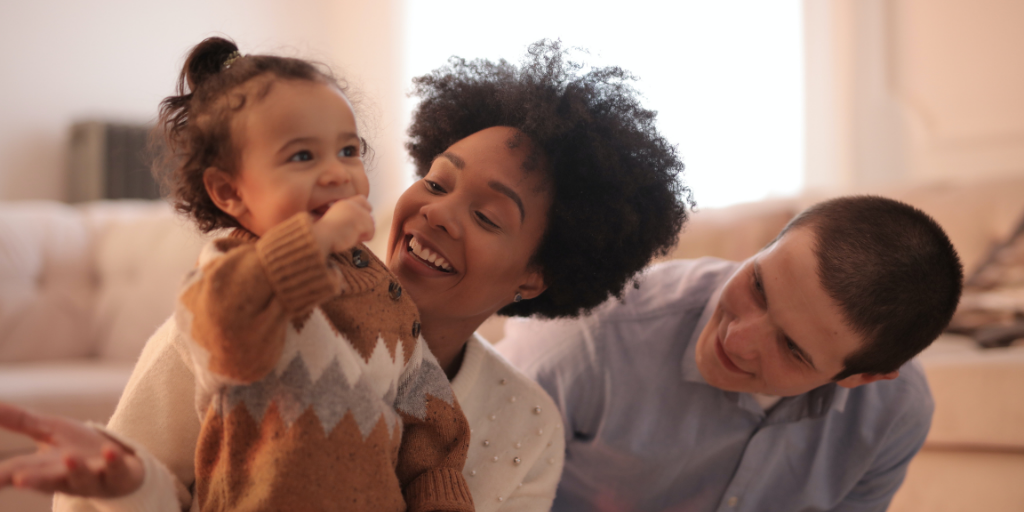
How To Make The Most Of Social Isolation
The experts agree that the best way to combat the spread of COVID-19 is through social distancing - but how exactly does that impact an infant’s social and emotional development?After six months of living in a global pandemic, you might be starting to wonder about the impact of these troubling times on your little one. Whether you’ve been socially distancing yourself this entire time, or you’ve returned to work and sent your baby back to daycare or school, there’s no denying that life has changed. From business closures to mask mandates, the rampant spread of COVID-19 has probably changed the way you and your family behave. The experts agree that the best way to stop the spread of coronavirus is to socially distance yourself from others - but how exactly does that isolation impact your baby’s development?
The reassuring answer is that thankfully, babies are resilient. Even though your pre-pandemic life probably included lots of weekly playdates, trips to the local library for storytime, activities such as baby gym or music class, lunch dates at restaurants, time spent at daycare or preschool, shopping at the mall, and countless hours spent with nearby family, isolating for a period of time even as long as the pandemic has lasted probably won’t have an extended negative impact on your baby’s social development. Infants can maintain their developmental progress despite the lack of repeated exposure to teachers, childcare providers, or their peers. Even small “social bubbles” can have a big impact - your baby’s interaction with a parent, grandparent, or sibling can greatly benefit their social and emotional development!
Parents working from home or stay-at-home parents can still be proactive in facilitating their child’s development during this time. While it’s not necessary to suddenly take on the role of teacher or infant specialist, parents can monitor their child’s progress and make sure their child meets age-appropriate milestones at the recommended stage.
Some important milestones to look out for include:
- Lifting and moving head (around 1 month)
- Discovery of own hands (around 2 months)
- Ability to coo and make noises (around 3 months)
- Lifting chest off the ground during tummy time (around 4 months)
- Arrival of first tooth (around 5-7 months)
- Start of crawling (around 6-9 months)
- Response to own name (around 7 months)
- Interest in food/eating food (around 6-7 months)
- Waving (around 9-10 months)
- Pulling to stand (around 10 months)
- Cruising along furniture (around 9-11 months)
- Dancing/moving to music (around 12-13 months)
- Walking (around 11-15 months)
As for social development, you can help your baby grow and develop all on your own! Although there are many benefits to attending a care facility outside the home, babies can develop social and emotional skills right from the comfort of their own home. After all, it isn’t really until closer to age 2 that children begin to play side by side (known as parallel play), and children don’t tend to play together until closer to age 3. That doesn’t mean that babies can’t or won’t socialize - it just means it can happen on a much smaller scale. Small, everyday interactions with a parent, caregiver, sibling, or extended family member can have a big impact on your baby’s emotional intelligence.
If babies can’t talk, how exactly do they socialize? There are many ways babies can communicate with those around them, even when they lack the language skills to do so. Socialization begins moments after birth, when the newborn is placed on a mother’s chest. The bond and comfort from skin-to-skin interactions and the closeness of breastfeeding help infants develop a secure sense of attachment with their caregivers.
In the months that follow, babies establish relationships with those around them, including parents, siblings, grandparents, cousins, friends, and others. Babies can communicate through babbling, cooing, smiling, gurgling, laughing, coughing, flapping their arms, kicking their legs, making eye contact, turning their face, crying, clapping, and waving. All of these communication skills can be practiced at home, and even if only one parent is at home most of the time!
So, even though life has changed for everyone, there are still many ways you can help encourage your baby’s emotional and social development. Prolonged periods of social isolation most likely won’t have a long-term impact on your little one, and the best thing you can do for your child during this time is to create wonderful memories through playing together, reading together, and enjoying lots of time together as you watch your little one grow!
Do remember to follow us on Instagram @keababies and join our loving and supportive KeaCommunity Facebook Group!
Parenting is awesome. Sleep is overrated. Every day is an adventure.
|
|
Meet Our KeaMommy Contributor: Kaitlyn Torrez I’m Kaitlyn Torrez, from the San Francisco Bay Area. I live with my husband and two children, Roman and Logan. I’m a former preschool teacher, currently enjoying being a stay at home mom. I love all things writing, coffee, and chocolate. In my free time, I enjoy reading, blogging, and working out. |


























































